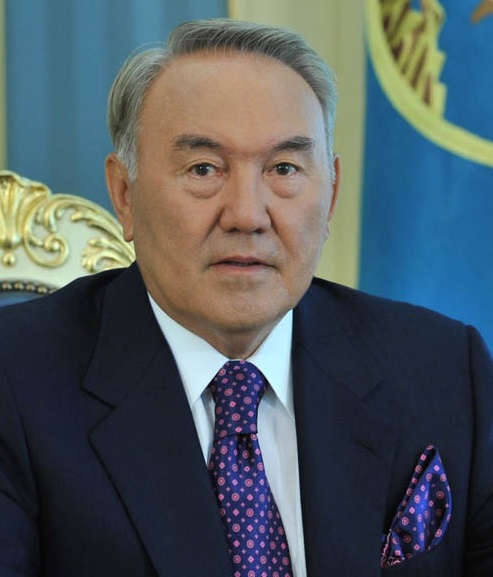After three decades in power Nursultan Nazarbayev relinquishes power as President of Kazakhstan
IAR DeskThe last Soviet era ruler in Central Asia, Nazarbayev elevated Kazakhstan’s profile in the international community
Photo:Margulan Zholaman

On 19th March, Kazakh media reported that Kazakh President Nursultan Nazarbayev, in a surprise and unprecedented move, announced that he was stepping down from the post of president. Nazarbayev has been holding this post for 28 years, since 1991, when the Union of Soviet Socialist Republics was dissolved and Kazakhstan emerged a sovereign republic.
In a resolution Nazarbayev declared that in accordance with point 3 of Article 42 of the constitution of the Republic of Kazakhstan he would cease to be President of the republic from 20 March 2019 and again in conformation with the constitution for the rest of the duration the Chairman of the Senate of Kazakhstan, Qasym-Jomart Toqayev, would take over as President.
In a televised address to the nation, which he delivered in both Kazakh and in Russian, he outlined the successes the young republic had achieved under his leadership. “As the founder of the independent Kazakh state, I see my future task in ensuring the coming to power of a new generation of leaders who will continue the ongoing reforms,” he explained.
Nursultan Abishovich Nazarbayev, 78, grew up in the Soviet Union, was a former steel worker and a high profile member of the Communist Party. He was the last Soviet era leader to hold the reins of power and ruled Kazakhstan and its almost 18 million people with an iron fist. Under him, energy rich Kazakhstan which is also the largest Centra Asian Republic has recorded higher standards of living, a brand new capital Astana, sustained increase in oil output, connectivity with the outside world, and foreign investments as Nazarbayev endeavoured to follow a ‘multi-vectoral’ foreign policy, trying to do a balancing act between Russia and the West. In 2012, Nazarbayev announced his new national strategy—Kazakhstan-2050— the main objective of which was to bring Kazakhstan amongst the top 50 developed countries in the world. The Routes Silk Road forum, an annual CIS travel and transportation forum, is to be held this summer in Astana.
The Central Asian country has been seeking to promote the nation as the key transport and logistics centre in Eurasia. Under Nazarbayev, Kazakhstan had also been positioning itself as mediating nation, hosting talks on Afghanistan and Syria through the Astana process. The next round of Astana talks on Syria is scheduled for April this year. More recently Kazakhstan donned the mantle of a regional donor, providing aid to Afghanistan, Kyrgyzstan, Tajikistan. Under the veteran leader, Kazakhstan also actively engaged with numerous multi-lateral for a such as the Commonwealth of Independent States, the Shanghai Cooperation Organisation, and the Eurasian Economic Union, and others.
Nazarbayev remains the president of his party Nur Otan, the largest party in the current Kazakh parliament, and will also remain the Chairman of the country’s Security Council.
His successor, 65 years old Kassym-Jomart Tokayev, is a career diplomat, and a Sinologist. A member of the Nazarbayev’s inner circle, Takayev has earlier held the posts of Minister of External Affairs and Prime Minister of Kazakhstan. He has also served as the Director General of the United Nations Office at Geneva from 2011-2013. He belongs to Nazarbayev’s Nur Otan party.
Kazakhstan will be heading for both presidential and parliamentary elections in 2020.